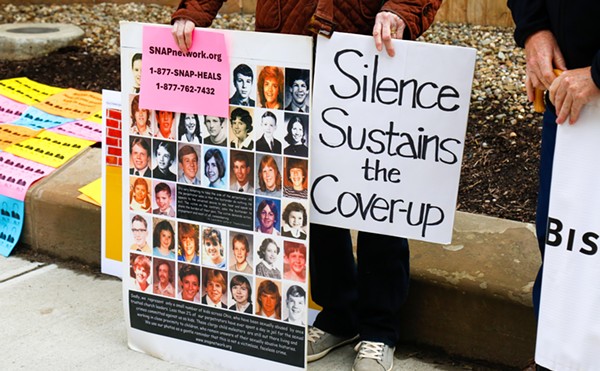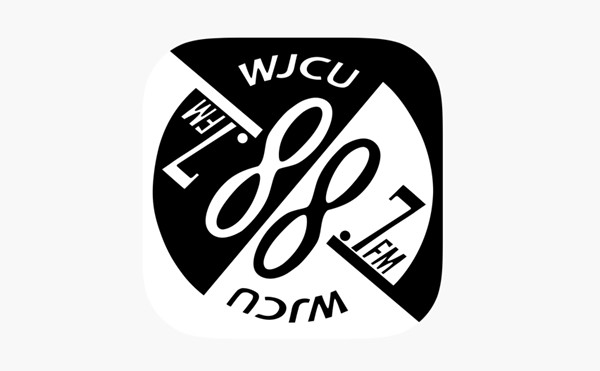Another little place called Chief's Fidelity Inn lay across the street at the time. They didn't have a jam going on over there, but they brought in blues bands on the weekend. Al Evans, the owner, desperately wanted a jam night. Mr. Z's was already humming along, and Sunday nights at Brothers Lounge down the street were picking up steam. The problem was competition: You can't just start hosting a jam on the same night as the guys across the street. Chief's Fidelity was already running promo events and shows every night of the week, except for Wednesday. But Mr. Z's had that night locked down.
"I showed up at Mr. Z's one Wednesday and there was no band. Nothing. I run—run—across the street, go up to the owner: 'You want to do a jam night?' 'I can't.' 'Yes you can.' 'What do you mean?' 'It's over at Mr. Z's.,'" Bay recounts. "The next day he got, like, five calls from people wanting to do a jam night. I was just hours ahead of the mad rush."
That otherwise quiet Wednesday evening in the fall of 1994 turned out to be a fortuitous turn of fate for the guitarist and for the city.
The move actually doubled as a chance for Bay to offer his students a live setting to hone their chops. He had been teaching for a few years at that point—an endeavor that he had initially been hesitant to undertake. "This would be the performance class," he says, likening his teaching career and that of his bandmates to a university setting. Still, he needed to anchor the thing with a house band.
In September that year, a young Michael Barrick had arrived via Japan, where he had been playing trumpet with the Air Force Band and Jazz Ensemble. After two days in his new city, he found himself killing time prior to an impromptu gig and taking a walk on Clifton Boulevard, where he encountered several musicians just doing their thing.
"Michael Bay and these two high-school kids were playing on the street, and we just listened to their whole show," Barrick says, adding that he introduced himself to Bay after the set. A few days later, Bay called the bass player and invited him to the jam at Chief's. He hadn't even heard Barrick play.
"So there were those jam sessions happening. And we were all just freelancing, doing what we needed to do, and decided to put a band together," Bay says.
The Chief's Fidelity days were short lived, though, as the club quietly shuttered. By then, Jim Wall had come onboard as the band's drummer after wrapping up a degree at Berklee. The Bad Boys of Blues took jam night and its budding community to Parkview Nite Club, where its Wednesday night antics have resided since.
"It just started happening," Boyd says. "You started seeing more and more people coming. There would be veterans playing with kids. Back when I was younger, you couldn't do that. You couldn't just go into a jam and get onstage and play with people who have been around for a long time." Indeed, something subtly different was brewing among the Bad Boys' events.
Soon enough, the owner of the Savannah Bar and Grille, in Westlake, came calling, hoping to bring a jam night to his place. At one point, the band was holding down jams four nights a week. By the late 2000s, the band had staked out a Thursday night residency at Brothers Lounge. And the musicians, of course, came with. The family was along for the ride.
***Bay's meandering roots system traces back to the Buckeye guitar, the early Cream records, the chance introduction to Barrick. And to Princess Lydia's voice.
Princess Lydia, a big, soulful jazz singer, needed a guitarist in the early '90s, and so came the next stop, playing with Princess Lydia and the Blue Knights, featuring King Solomon: Alligator Recording Artist and Grammy Award Winner. "Put that on the marquee," Bay says with a laugh.
This was the first blues band Bay played in — several years before the advent of jam night.
"But everything they did was in the key of G. At first, I could see myself getting really frustrated.
"In essence, I'm playing the same song all night long. So in my role, what I can bring each time we start the same song to make it different? That's what my challenge was night after night. And what a great opportunity. Here's a shuffle. Now here's another one. Do it differently. Here's another one. Do it differently."
He used to sit and watch Princess Lydia work the crowd after each show, in awe of her gift of gab. She pulled Bay aside one night and told him that part of the gig entailed chatting up the people in the crowd. "It was painful to talk with strangers. Become a professional musician and you've got to get over that real quick," he says.
But he saw it as a necessary assignment. Homing in on a pleasant-seeming table, he planned his course of action one night. Just a little conversation about the show. Simple. He walked toward the group—the butterflies in his stomach practically gnawing his innards, the walls of the room suddenly breathing with emotion—and walked right past them, outside and into the fresh air.
The same thing happened the next week.
By the third week, he figured something had to give. He found a quiet couple and rehearsed his neutral line, engraving it on his tongue: "Thank you for coming out. I hope you enjoyed the music."
With courage kicked into high gear, Bay approached the table and spoke his first words to an audience member: "Thank you for coming out. I hope you enjoyed the music." A brief pause. And then: They talked his head off for the entire setbreak. Bay rolled with the conversation, discussing the music and answering questions about the show. Though the pain hadn't evaporated, he saw he could do this with a little practice.
***"Musically and lyrically, blues is simple in that way," Bay says. He's working a bowl of pho in Cleveland's flourishing Asiatown district. "Now, I didn't say 'easy.' I said 'simple.' You get six lines in most blues tunes to say what you've got to say. Take B.B. King's 'The Thrill is Gone.' Just that right there changes everything. You know right where it's going. And it's a great tune."











